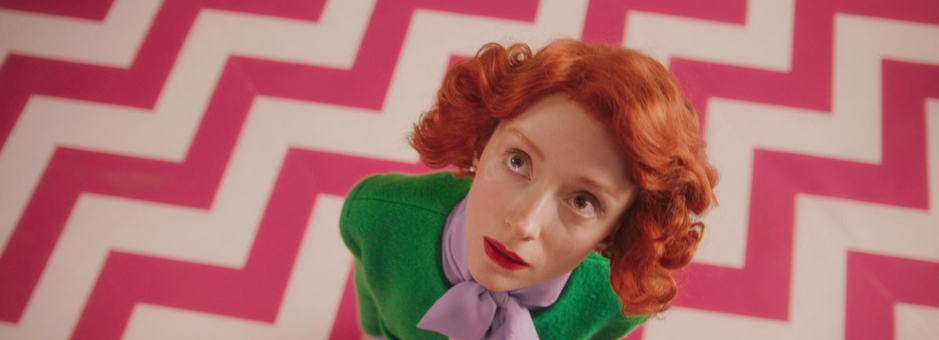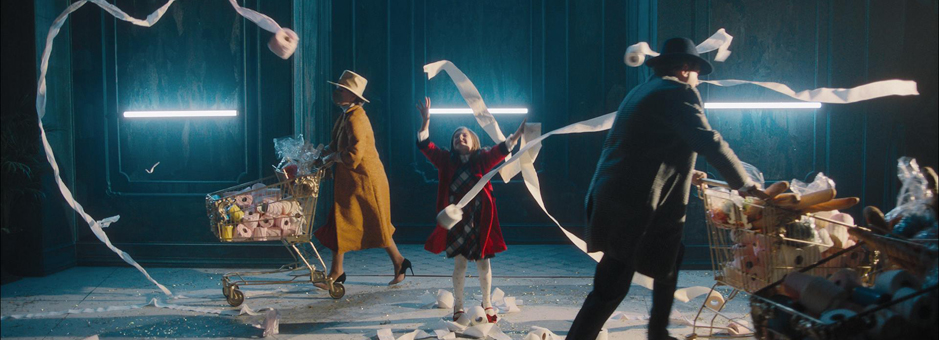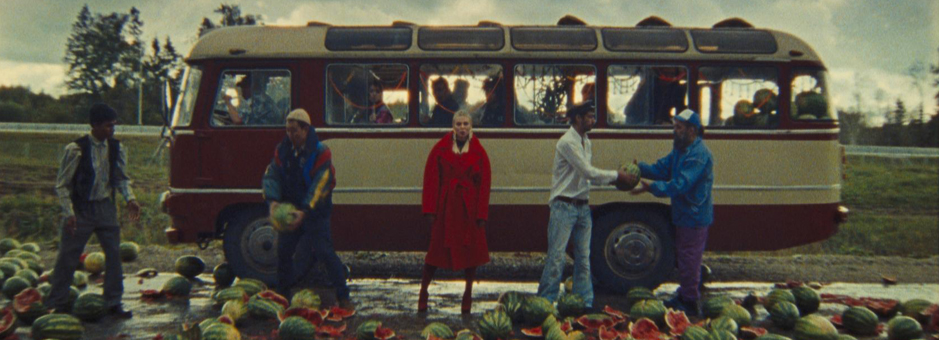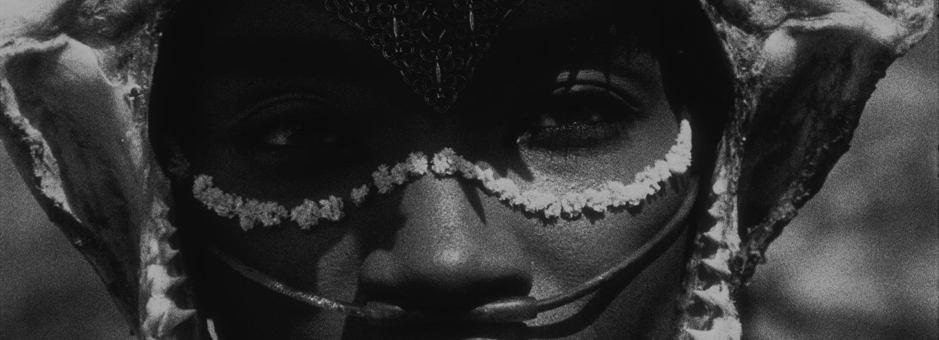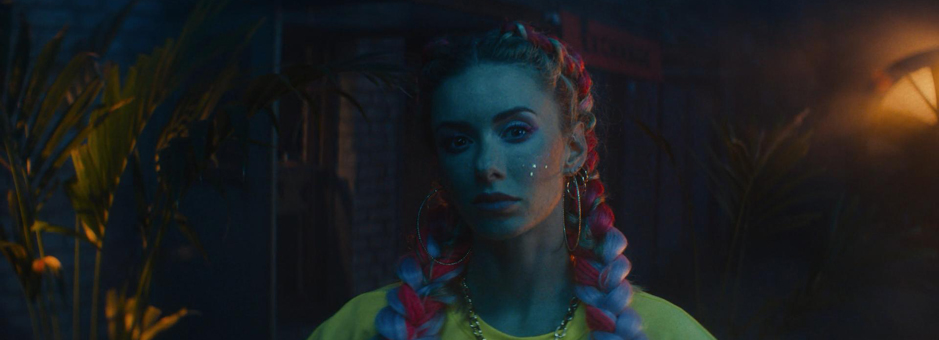Meet The Colourist
Artem Leonov
Senior Colourist, Artyficial, Moscow
Artyficial is one of the top colour grading studios in Moscow, focusing mainly on commercials and music videos.
Colourists Artem Leonov and Timofey Goloborodko created the studio back in 2018 and decided to adopt FilmLight’s end-to-end pipeline for its flexibility, colour management and speed. In this interview, Artem tells us more about his career and the work he and Timofey undertake at Artyficial.
How did you start in post and became a colourist?
I graduated from university in marketing, but my dream job was system administrator. I loved Unix and programming, so I started working as a ‘sys admin’ for a while.
One day at the office, I met an editor who was working on a feature film on his Mac. My professional life switched from that moment. He explained the basics of cinematography and taught me a lot. From then on, I spent all of my free time reading books about the making of cinema and anything useful about the industry that I could find online and in bookshops. Meanwhile, I started doing both editing and colour correction, but soon I felt that helping directors and cinematographers emphasise their vision with light and colour was - to me - more rewarding and powerful.
I started using Final Cut Pro and later on moved to more specialised colour systems such as Lustre, Davinci and Spirit Telecine. At every step of this learning curve I encountered some limitations, but they taught me how to control and plan the job ahead.
Now, with Baselight, I can concentrate solely on the creative part of the job…
Please provide a little information about Artyficial.
I wanted to create a place where the artistic atmosphere meets the cosiness of a home. It's a small creative studio with the ability to recharge people's minds and souls. We are also kid- and pet-friendly.
Can you describe what creative services you provide at the facility?
Our main profile is colour grading for commercials and music videos. And we share an edit suit with our friend. We also do some R&D such as creating shooting LUTs.
Can you share some details on your creative direction for the upcoming year?
It's like a shadow fight… I'm trying to get better I guess. Not only with the artistic craft but also, for example, with people. I find the advertising industry quite cynical and harsh, so it's important to keep calm and be more human.
As for colour grading, I have no strict limits. I'm working with so many different people that it guides me in different ways. I have my methods and vision but it is closely connected with the intent of the directors and cinematographers, and the form of the film. In my opinion it's important to be versatile but with a touch of your own soul. And keep learning. It's a neverending story.We have been working together since the creation of the studio three years ago. We were working in different companies, but came to a point where we needed to start something new and personal. We knew each other much earlier and it certainly helps with work. We are good friends and share tough moments as well as good drinks. If you calculate the total time spent in the studio together, you can call us a family :)
Why Basellght as your hero suite?
Flexibility, stability, performance and support… If you take into account these four reasons, as well as thinking strategically and comparing costs and return on investment with other grading software, then it explains it all.
I've not just finally chosen to invest in a Baselight system. It was the first professional grading system I worked on, and at the time it already set the bar quite high in comparison to other tools. Being a freelancer and then working in several different studios, I got to work on various other systems at the time. After many years of hard work, with my own studio, I could finally reunite with FilmLight and I'm really happy about it.How do you use Baselight on a daily basis? And what Baselight tools do you use the most?
As I said before, we work on the commercials and music front. That means two to three different projects per day. We need to adapt fast and don’t have time to deal with technical issues. Baselight allows rendering and grading in parallel and saves us time. From time to time we have feature film projects, and there too Baselight demonstrates good stability and performance.
What's your favourite thing about Baselight?
The best thing about Baselight? FilmLight, the team – we feel like we have direct interaction with them. It is a relief to know that engineers and colour scientists from the other side are not just playing games with marketing but doing their best to meet the demands of colourists and implement their ideas.
And we love the Slate control panel.Was there a particular project in your career that got you to where you are today?
I think more than a project, people inspire me: cinematographers, directors, colourists, painters...
Some recent interesting projects we’ve worked on include: A101 Live Apartments, Red Bull Zero G, To-ma - Hookah, Zoommer, Brusnika Apartments, Ankobo Kaboo Wakangenei, Adrenaline Rush - Moments, Kia Sorento, TochkaBank Paranoia, Lesha Svik - She Likes.
When working on these different projects, we mostly use Dkey and the Texture Blend features, among others. They save so much time.
Overall, Base Grade and Film Grade are the tools that we use the most - they are super clean and flexible. Also, the shaders help a lot.What are the biggest challenges you face today as a colourist?
The most difficult is fighting standards and stereotypes, especially with commercials. Bright and sunny pictures are not everything. Branding can be overwhelming. We need a story. Colour can’t replace emotions but it can make it richer. As for the technical part, Baselight has such a good toolkit we can deal with almost every client’s wishes.
How do you keep learning your craft?
Today it's easier and harder simultaneously. It's hard because there is too much information floating around. It's easy because you have access to great online courses and tutorials.
Watch movies of the masters from the past and present. Try to find new ways of using the colour tools. Listen to the cinematographers and directors carefully. Keep a child inside you - this inner child can evolve your imagination.
To whom do you talk the most about your grading projects usually?
Usually I discuss jobs with my friend Tim after all daily jobs are done. And I like to talk with the cinematographers and directors during our grading sessions.
Join In
If you want to participate in our MTC programme, we'd love to hear from you. Contact:
Alexa Maza
e: [email protected]
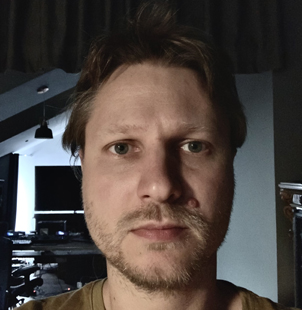
“I started doing editing and colour correction, but soon I felt that helping directors and cinematographers emphasise their vision with light and colour was – to me – more rewarding and powerful.”
Details
Colourist: Artem Leonov
Role: Senior Colourist




